Dhaka attack: High alert issued along Indo-Bangladesh border
The Border Security Force has been put on "very high alert" along the 443-km long Indo-Bangladesh border in Meghalaya following the killing of 20 hostages in a terror attack at a restaurant in Dhaka, an official said on 3 July.
"The force has been put on very high alert along the Indo-Bangladesh border following the armed attack in Dhaka. Security has been tightened," BSF Inspector General (Meghalaya Frontier) PK Dubey said.
Police personnel posted close to the border has been alerted and asked to keep strict vigil in close coordination with the BSF, a senior police officer said.
"As it is, the festival season of Eid and Rath Yatra, there was a strict vigilance on the border. But after yesterday's attack in Bangladesh, we have further increased our vigilance," said Sandeep Salunke, IG, BSF. "We have issued high alert and special operations are on," he added.
The Islamic State has claimed responsibility for the attack. Bangladesh has, however, denied any link to the IS and said that they were a part of homegrown Bangladeshi militant outfit.
Relief, rescue operations continue following cloudburst in Uttarakhand
Rescue operations are underway in Uttarakhand even as incessant rains continue to pound parts of the state.At least 30 people have been killed in the cloudbursts and landslides, with some reports pegging the death toll to be as high as 39.
The death toll in Pithoragarh and Chamoli districts of state has risen to 16. Thirteen people were rescued from seven villages, including Bastari under Didihat tehsil of Pithoragarh.
So far, 10 dead bodies have been recovered, while about 17 people are still buried under the debris. In four villages of Chamoli district, six people have been killed, while three others are missing. Meanwhile, the Rishikesh-Badrinath national highway remains still blocked at some places.
Pakistan not concerned about US-India ties: Sartaj Aziz
Sartaj Aziz, Pakistan's Foreign Affairs advisor to the Prime Minister, has declared that Islamabad isn't concerned with the strengthening of ties between India and the United States, provided that the cooperation between the two nations did not increase the gap between the nuclear-armed rivals within the subcontinent.
Aziz said in an interview that the United States has constantly assured Pakistan that both countries were of equal importance to them.
"I think US has itself emphasized number of times that our relations with India are not at the cost of Pakistan; both are important for us. India is important in the south Asian and East Asian context, whereas Pakistan is important in west Asia and central Asian context. We are one of the largest Islamic, democratic country, and we have a role vis a vis Afghanistan and in this region," Aziz said.
Suspects arrested in Hyderabad pledged allegiance to IS: NIA
On 2 July, the National Investigation Agency made some major revelations in the case involving the arrest of five IS suspects in Hyderabad. Investigations have revealed that several money transactions had taken place with the Middle East from the suspect's accounts through 'hawala', and also confirmed the fact that they had pledged their allegiance to the Islamic State.
It was during the ongoing investigation of the arrested persons that it was revealed that the suspects scouted for hideouts nearby Hyderabad for assembling the bombs and also for safe shelter after committing the bomb attack.
According to a statement by NIA IG Sanjeev Kumar Singh, two arrested persons - Ibrahim and Iliyas are brothers, while Habeeb and Fahad are related by matrimony and one of the accused had earlier attempted to go to Syria via other neighbouring country.
"The accused were using chat and email platforms for communicating amongst themselves as well as the handler. They had visited other places outside Hyderabad for procurement of explosive precursor chemicals and firearms," the statement read.
Holocaust survivor, Nobel laureate Elie Wiesel dies at 87
Nobel laureate Elie Wiesel, who is well-known as the survivor of the Auschwitz Concentration Camp of the Nazis and the witness for the six million Jews slaughtered in World War II, died at his residence in Manhattan at the age of 87.
The humanities professor, who was the author of several books, seared the memory of the Holocaust on the world's conscience through his autobiographical account 'Night' in which he recounts the horrors he witnessed in the Nazi camps as a teenage boy.
In 1986, he was awarded the Nobel Peace Prize for his humanitarian works.
Experts suggest that Global warming is not caused by natural factors
On analysing data on the earth's temperature since the year 1500, it has been revealed that the incidence of global warming in the industrial era is not a mere natural fluctuation in the earth's climate.
The study, by McGill University physics professor Shaun Lovejoy, represents a new approach to the question of whether global warming in the industrial era has been caused largely by man-made emissions from the burning of fossil fuels.
Rather than using complex computer models to estimate the effects of greenhouse-gas emissions, Lovejoy examines historical data to assess the competing hypothesis: that warming over the past century is due to natural long-term variations in temperature.
3D blood vessels can now be printed in mere seconds
A brand new technology has been developed by nanoengineers at the University of Caifornia, San Diego, that can fabricate, in mere seconds, microscale three dimensional (3D) structures out of soft, biocompatible hydrogels.
Near term, the technology could lead to better systems for growing and studying cells, including stem cells, in the laboratory. Long-term, the goal is to be able to print biological tissues for regenerative medicine. For example, in the future, doctors may repair the damage caused by heart attack by replacing it with tissue that rolled off of a printer.
The biofabrication technology, called dynamic optical projection stereolithography (DOPsL), was developed in the laboratory of NanoEngineering Professor Shaochen Chen. Current fabrication techniques, such as photolithography and micro-contact printing, are limited to generating simple geometries or 2D patterns.
Five Indian fishermen apprehended by Sri Lankan Navy, their boat seized
In the early hours on 3 Jule, five Indian fishermen were apprehended by the Sri Lankan Navy, who in turn detained their fishing boat.
The fishermen were fishing near the Delfts island.
The Navy arrested the five fishermen as they crossed the international maritime boundary line. Sri Lanka normally releases apprehended fishermen as goodwill gesture but fishing boats are detained. The local fishermen are urging the government to secure the immediate release of fellow fishermen and 94 detained fishing boats.
Mercury's origins traced to rare meteorite
Mercury's origins have been traced to a rare meteorite by a team of researchers.
Around 4.6 billion years ago, the universe was a chaos of collapsing gas and spinning debris. Small particles of gas and dust clumped together into larger and more massive meteoroids that in turn smashed together to form planets.
Scientists believe that shortly after their formation, these planets and particularly Mercury were fiery spheres of molten material, which cooled over millions of years.
Now, geologists at MIT have traced part of Mercury's cooling history and found that between 4.2 and 3.7 billion years ago, soon after the planet formed, its interior temperatures plummeted by 240 degrees Celsius, or 464 degrees Fahrenheit.


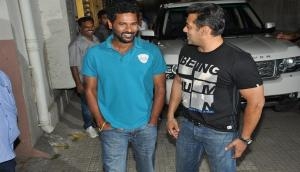
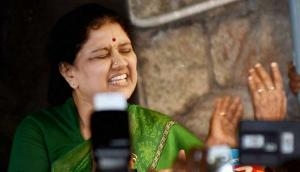
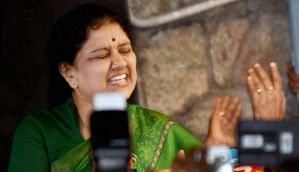
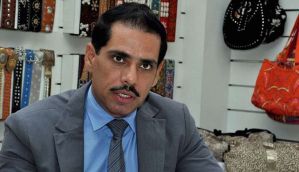
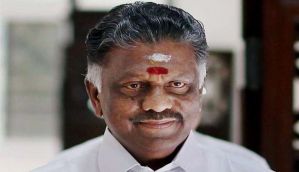
![BJP's Kapil Mishra recreates Shankar Mahadevan’s ‘Breathless’ song to highlight Delhi pollution [WATCH] BJP's Kapil Mishra recreates Shankar Mahadevan’s ‘Breathless’ song to highlight Delhi pollution [WATCH]](https://images.catchnews.com/upload/2022/11/03/kapil-mishra_240884_300x172.png)

![Anupam Kher shares pictures of his toned body on 67th birthday [MUST SEE] Anupam Kher shares pictures of his toned body on 67th birthday [MUST SEE]](https://images.catchnews.com/upload/2022/03/07/Anupam_kher_231145_300x172.jpg)






